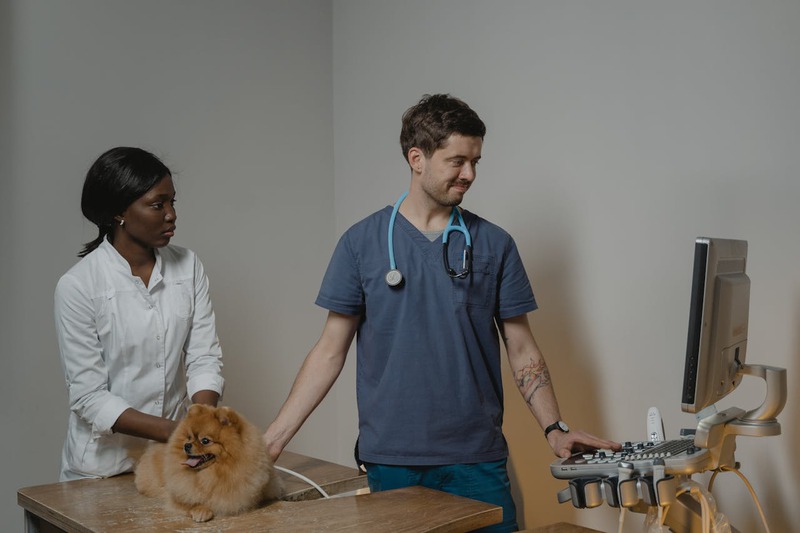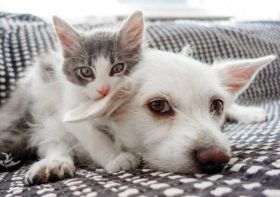How Do Internal Medicine Vets Handle Pet Quarantine Inspections?

When we think about quarantine, we often picture a scenario affecting humans. But our furry friends sometimes face quarantine, too, especially when they travel across borders or have been exposed to infectious diseases. Internal medicine vets play a key role in this process, ensuring that our pets are healthy, safe, and ready to rejoin their families post-quarantine. In this piece, we’re delving into the nitty-gritty of how these veterinary experts manage pet quarantine inspections.
Internal Medicine Vets and Pet Quarantine Inspections
The primary role of internal medicine veterinarians during pet quarantine inspections is to guarantee that the animal does not bring any infectious diseases into the area, thus protecting local animal and human populations. Here’s how they do it:
1. Initial Assessment
It all starts with a thorough check-up. The vet evaluates the pet’s medical history and conducts a comprehensive physical examination. They’re on the lookout for signs of illness that might be harmful to other animals or people.
2. Disease Testing
After the initial check-up, further tests may be needed. These could include blood tests, urine tests, or even X-rays and ultrasounds. The vet is like a detective, searching for hidden health issues.
3. Vaccination Verification
Comprehensive pet vaccinations are crucial for a pet’s entry into a new country. The vet will confirm that the pet’s shots are up-to-date and that the vaccinations are appropriate for the specific diseases present in the destination country.
4. Observation and Monitoring
While in quarantine, pets are under close observation. Vets monitor their well-being, quickly addressing any health changes that may occur during this period.
5. Documentation and Certification
Once the vet is confident that the pet is healthy, they will provide the necessary health certificates and documentation required by authorities. This paperwork is the pet’s ticket out of quarantine.
6. Adjustment and Follow-Up Care
As pets near the end of their quarantine period, vets will start preparing them for the transition back to their home environment. They’ll also provide owners with advice on follow-up care to ensure a smooth adjustment.
Benefits of Expertise in Quarantine
-
Ensures the health and safety of pet populations
-
Prevents the spread of zoonotic diseases
-
Provides peace of mind to pet owners
Frequently Asked Questions
What Diseases Are Vets On The Lookout For During Quarantine?
Vets watch for a range of diseases, from rabies and distemper to parasites like ticks and fleas, that can have serious implications for both animal and public health.
How Long Do Pets Typically Stay In Quarantine?
Quarantine can last from a few days to several months, depending on various factors such as the country’s regulations and the pet’s health.
Can Pet Owners Visit Their Pets During Quarantine?
Yes, but it depends on the quarantine facility’s policies. Some allow scheduled visits under strict conditions to reduce stress for the pet.
Real-Life Applications
Accessing High-Quality Veterinary
Sometimes, pets require more than a medical exam or vaccination verification. They might need surgical intervention. Let’s say you and your pet face such a predicament. Access to high-quality veterinary surgical care in Dallas, GA, is essential to ensure your pet’s health issue is addressed before or after quarantine as needed.
Educational Opportunities
Understanding the quarantine process can be overwhelming for pet owners. That’s why it’s crucial to visit now to learn more about internal medicine vet services and how they can help navigate pet quarantine protocols effectively.
Global Impact
Veterinary professionals worldwide follow protocols similar to those of internal medicine vets regarding quarantine. This globalization ensures uniformity in standards, helping to keep diseases at bay worldwide.
Final Thoughts
Internal medicine veterinarians are essential in managing pet quarantine inspections. Their medical expertise ensures that our pets remain healthy and disease-free during this critical time. Remember, quarantine isn’t just about keeping animals confined; it’s about safeguarding the entire community’s health and allowing our beloved pets to join us safely at home, no matter where our travels take us.


